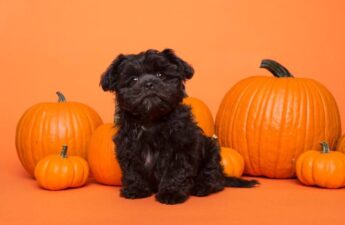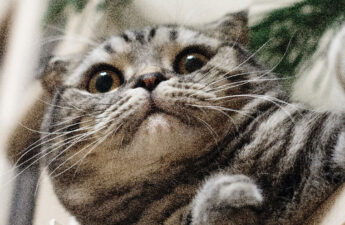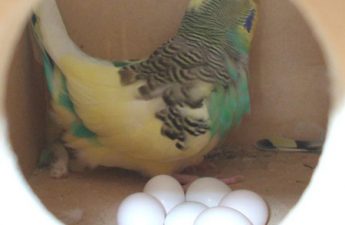Parakeets can enjoy a wide range of foods from seeds, flowers, fruits and vegetables. All parakeets are vegetarians and enjoy non-meat food. Here are some suggestions for stocking up on some tasty parakeet friendly meals.
Vegetables
Vegetables provide a great source of vitamins and minerals for parakeets. As vegetarians parakeets love a number of vegetables. Adding a few fresh vegetables to your parakeets diet will keep their energy high and body, feathers and health is good condition.
A list of safe vegetables to enjoy include: beets, broccoli, cauliflower, carrots, cucumber, all Cabbage varieties, fresh beans, fresh Romane Lettuce, fresh Peas, Parsnip, all Pepper varieties, all Squash varieties, Sweet potatoes, Tomato, Turnip, Yams and Zucchini. Chop up a few and add them to your parakeet’s food dish and you’ll have a very happy, healthy parakeet.
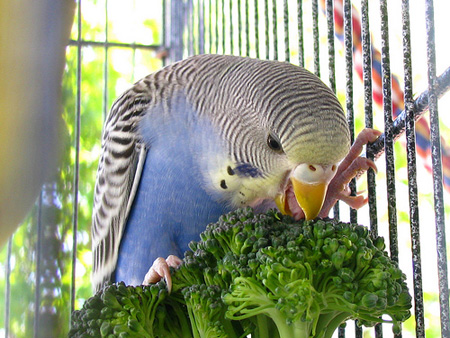
Whole Grains and Cereals
Parakeet’s have a long history that runs back to their origins in the wild. Part of their wild roots, runs over into their diet. Parakeets love to eat whole grains and cereals which are a major element of their diet when they lived in the wild. In the wild they would normally snack on grass seeds but when kept as a pet, parakeets can enjoy a wide variety of seeds from: Amaranth, Barley, Couscous, Flax, whole-grain Pastas, Oat, Quinoa, Whole-Wheat, Wild-Rice and whole Rices. Other grains and legumes that parakeets enjoy include Almonds, Beans, Lentils, Peas, Nuts, Tofu, Adzuki beans, Alfalfa beans, Buckwheat, Lentils, Mungo beans, Pinto beans, Red Kidney beans, Sesame seeds and Sunflower seeds.
Many of these smaller items can be used when training a parakeet as a reward or a small treat.
Please avoid lima and navy bean spouts. These are toxic to parakeets and can harm the parakeet. If you wish to add whole grains to your parakeet’s diet stick to those listed above to keep them healthy and happy.
Flowers
Surprisingly parakeets love to snack on flowers and the blossom of the flowers. These can add a bit of variety to their diet and provide a few essential vitamins and minerals that a parakeet needs. The leaves of some flowers and plants can be poisonous to parakeets. In an effort not to harm the parakeet stick to some of the following to make sure that your parakeet is eating safe and healthy flowers: Carnations, Chamomille, Chives, Dandelion, Day Lilies, Eucalyptus, Fruit tree’s blossoms, Herbs’ blossoms, Hibiscus, Honeysuckle, Impatiens, Lilac, Nasturiums, Pansies, Passion Flower (Passiflora), Roses, Sunflowers, Tulips and Violets.
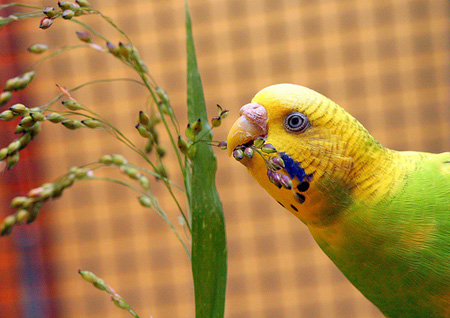
Greens
Parakeets enjoy having a bit of greens added to their diet. Some greens can be very harmful to the parakeet and should be avoided. In fact some can cause calcium deficiencies, liver damage and other health problems. Greens should only be added to the parakeet’s diet occasionally, too many greens can be harmful to their health. Gurenteed safe greens include: Bok-Choi, Broccoli &/or Cauliflower leaves, Cabbage leaves, Collard greens, Dandelion leaves, Kelp, Mustard leaves, Seaweeds, Spirulina and Water cress.
Bad Foods
While we may have good intentions when feeding a parakeet some “human” food, it can actually end up harming the parakeet. It is a good idea to stick to the foods listed above but some foods that should be avoided at all costs include: chocolate, alcohol and avocados. While they taste yummy to humans they can cause death to the parakeet. Any foods that contain lactose, garlic and onions should also be avoided as there is a chance of them containing dangerous toxins that could harm your parakeet.
Now that you know what to feed your parakeet you can stock your shelves with treats for your new pet. When in doubt of what to feed a parakeet, don’t feed it to them and consult a vet.

